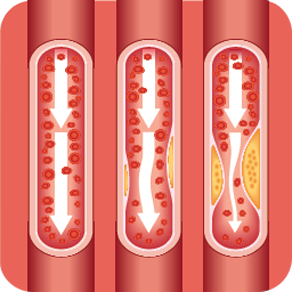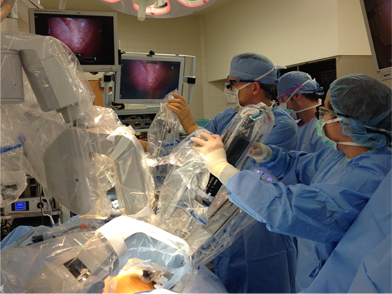Frank Stanley
Radical cardiac catheterization
When you visit the cardiac cath lab, you may be diagnosed with and treated for CAD, a narrowing or blockage of the arteries to your heart. Your doctor may call this a hardening or clogging in your arteries.
This can be life-threatening if left untreated, as your heart needs oxygen rich blood to work properly. Oxygen loss is what causes you to feel chest pain and pressure inside your chest. These symptoms can sometimes be confused with heartburn.
CAD may also be called atherosclerosis. This buildup of cholesterol and fatty deposits (or plaque) happens over time. Once your heart is starved of the nutrients in your blood, you are at risk of having a heart attack.

Your visit to our cath lab may have revealed you have CAD. This is a serious condition that often needs rapid treatment to open blocked arteries. The Meijer Heart Center’s cath lab can perform a percutaneous coronary intervention, or PCI.
PCI is also called angioplasty. This procedure restores blood flow to the heart without open heart surgery. Using the femoral or radial approach, your doctor will insert a special catheter with a tiny balloon at its tip. This catheter is guided to the blocked coronary artery. Once in place, the balloon is inflated at the narrowed area of the coronary artery. This presses the plaque against the sides of the artery, making more room for blood flow.
Once the artery is opened, your doctor may insert a stent, an expandable metal mesh coil, which helps keep the artery open.
The Meijer Heart Center offers valet parking, at no charge, for patients entering our cardiac cath lab for diagnostics or treatment. We also offer comfortable waiting areas for those accompanying you during your visit. We are dedicated to helping you navigate our hospital with the least stress possible.
We are the only center in Grand Rapids that offers immediate open heart surgical backup in case of emergencies. The cardiothoracic surgical team is just seconds away, which means you will never need to leave Meijer Heart Center.
Seek out Spectrum Health for advanced life-saving expertise. Our cath lab offers the latest procedures to treat:

Radical cardiac catheterization
Radical cardiac catheterization